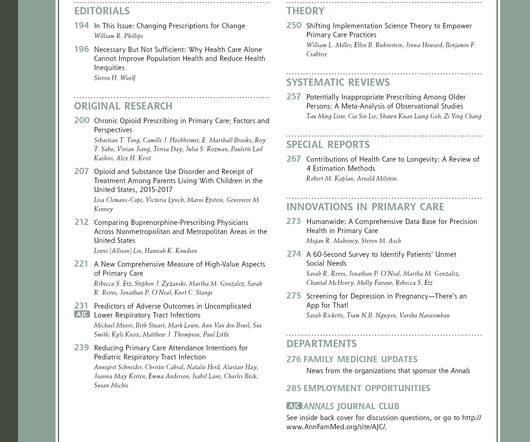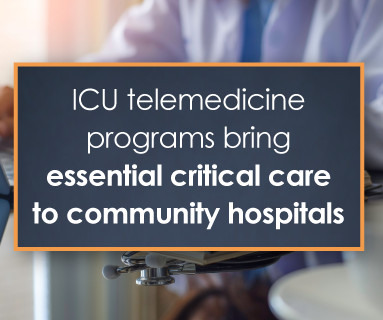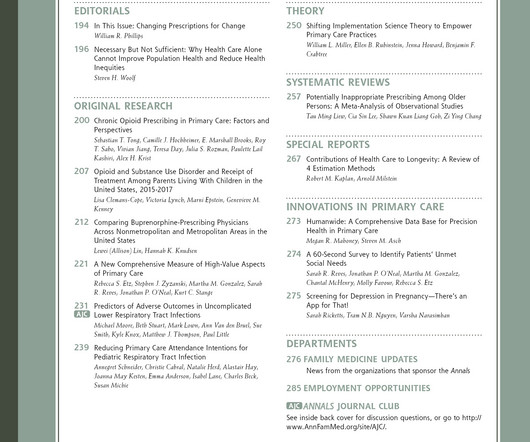Risk of Acute Rhinosinusitis Progression Based on Duration of Symptoms, Method of Care, and Setting of Care [Acute respiratory infections]
Annals of Family Medicine
NOVEMBER 20, 2024
Context: One of the most common primary care illnesses is acute rhinosinusitis (ARS). Patients with 1 to 9 days of symptoms were included, and patients could have an in person or telemedicine appointment with a clinician. Guidelines currently suggest treating ARS with antibiotics when persistent symptoms or double sickening occur.
















Let's personalize your content